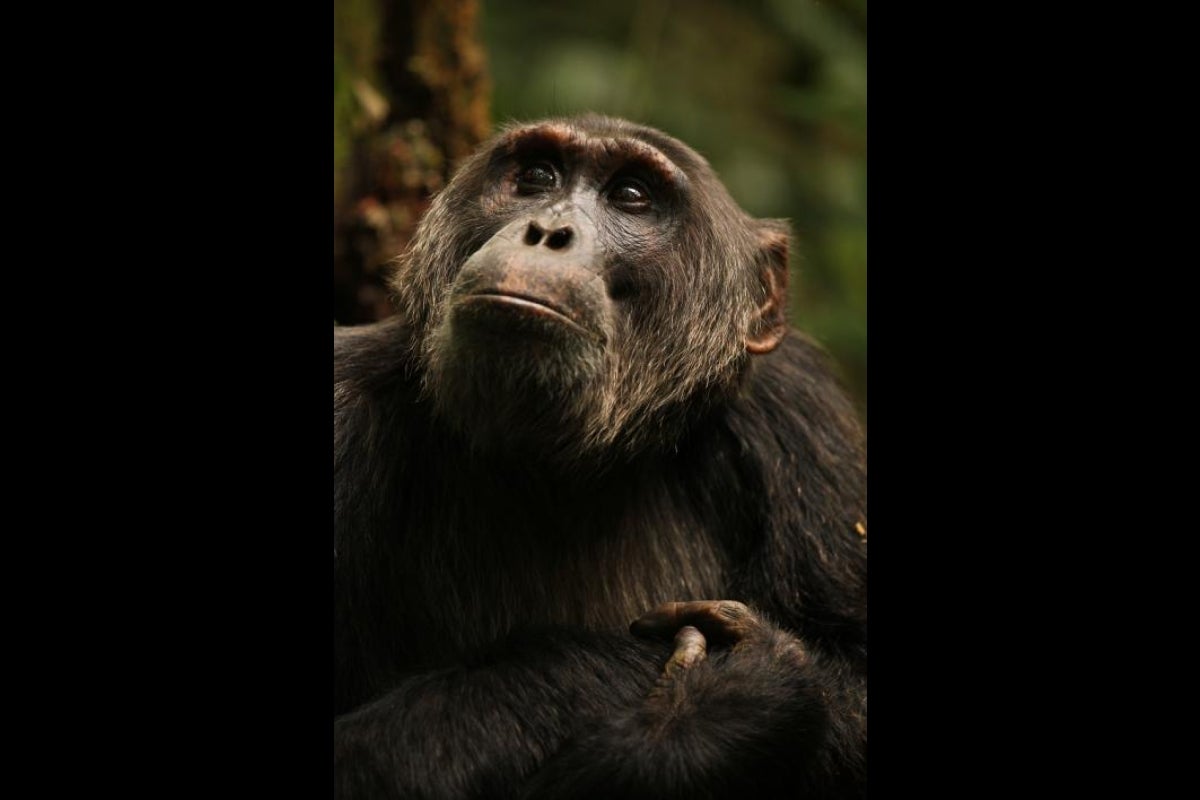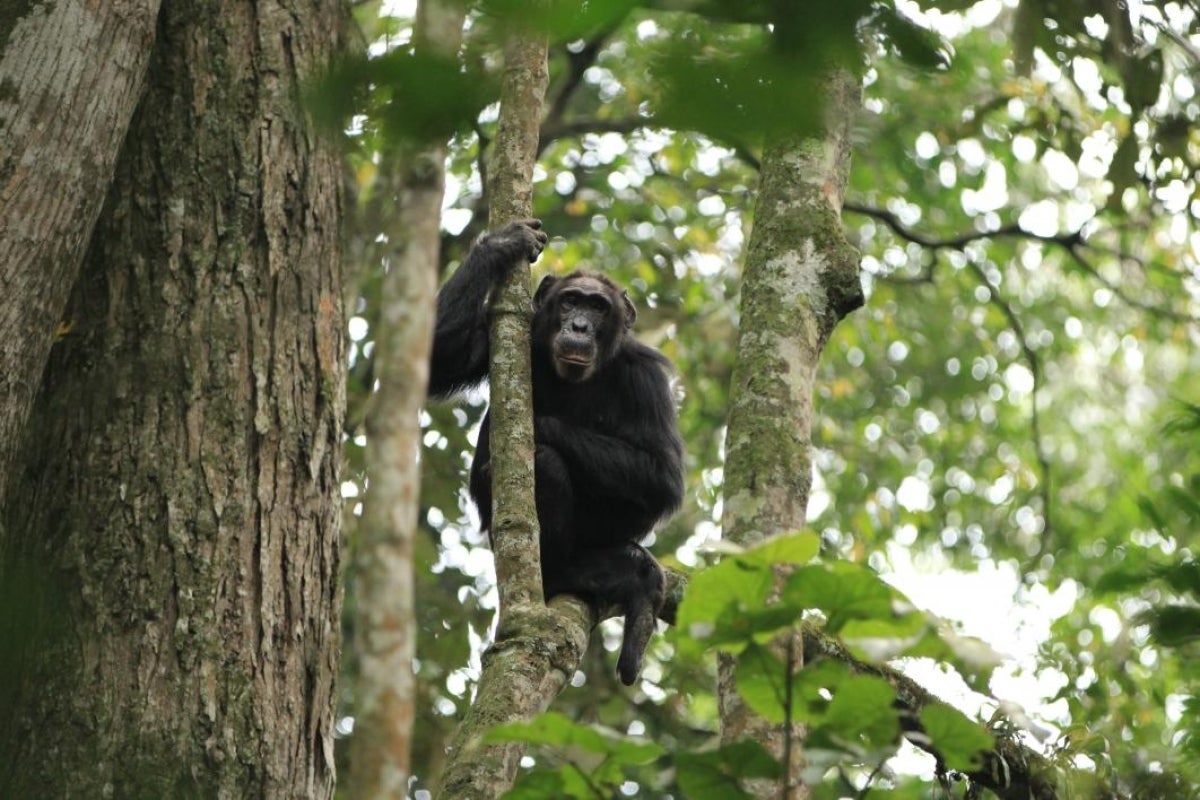ASU researcher featured in award-winning documentary on Ngogo chimpanzees

Marlene, the oldest female in the Ngogo chimpanzee community. Image by Kevin Langergraber
Arizona State University researcher Kevin Langergraber knows nearly 200 chimpanzees of the Ngogo community by sight and by name — Jackson, the alpha male; Marlene, the oldest female; and Morton, a particularly aggressive adult male.
Langergraber began learning about the Ngogo chimpanzees in 2001 as a graduate student. Now a research affiliate with the Institute of Human Origins and assistant professor with the School of Human Evolution and Social Change, Langergraber codirects the Ngogo Chimpanzee Project, a long-term study of the Ngogo chimpanzees in Kibale National Park, Uganda.
Along with project founders David Watts (Yale University) and John Mitani (University of Michigan), Langergraber is featured in a documentary about the Ngogo chimpanzees and the researchers who have studied them for the last 25 years. "Rise of the Warrior Apes" will be screened at 6 p.m. Thursday, Feb. 15, at the Marston Theater on ASU's Tempe campus.
Langergraber has had experience working with wildlife film crews before, including for BBC’s "Planet Earth" series. "Rise of the Warrior Apes," however, is very different from most wildlife films.
“Film crews typically come out to Ngogo for a few weeks to film generic chimpanzee behavior — they want to get footage of them grooming one another, hunting monkeys or going on territorial boundary patrols in search for chimpanzees from neighboring groups — just chimps doing chimp things,” Langergraber said.
But the director of "Warrior Apes," James Reed, was specifically interested in telling the stories of individual chimpanzees and the researchers who have studied them since 1993.
“Watching chimpanzees is like watching a soap opera,” Reed said. “At dinner we gossip about who did what with whom that day and what we think will happen to so-and-so in the future. This film is great not only because it tells some of these really interesting stories about individual chimps, but also because it gives some insight into the experiences of the humans who have been studying them for so many years.”
In contrast to other wildlife films, much of the footage in the film was taken by the Ngogo researchers themselves over the last 25 years, rather than by visiting professional camera crews.
Langergraber credits this unique perspective as the main reason "Rise of the Warrior Apes" was recently awarded “Best Animal Behavior Film” at the Jackson Hole Wildlife Film Festival, besting large budget productions such as BBC’s Planet Earth II series.
“Wildlife film people tell me that Jackson Hole is their version of the Oscars,” Langergraber said. He hopes that publicity from the film will help motivate people to get more involved in chimpanzee conservation.
Chimpanzee populations have decreased dramatically all across their range in equatorial Africa over the past century and they are classified as an endangered species. The main threat to the chimpanzees at Ngogo and elsewhere in Kibale is illegal hunting. Although local people have cultural taboos against eating primates, chimpanzees are often caught in wire snares that poachers set to catch other small mammal species, such as bush pigs or forest antelope. Snares are a major source of chimpanzee mortality, and many “lucky” individuals who escape from snares and survive lose a hand or foot in the process.
Langergraber employs nine Ugandans, some of whom are ex-poachers themselves, to remove snares from the forest and curtail other illegal hunting activity. Much of the funding for these activities come from donations from the public.
To learn more about chimpanzee research and conservation at Ngogo, visit Ngogochimpanzeeproject.org or Facebook.com/ngogochimps.
The "Rise of the Warrior Apes" screening is free and open to the public but a ticket is required to secure a seat.
More Science and technology

ASU technical innovation enables more reliable and less expensive electricity
Growing demand for electricity is pushing the energy sector to innovate faster and deploy more resources to keep the lights on…

What do a spacecraft, a skeleton and an asteroid have in common? This ASU professor
NASA’s Lucy spacecraft will probe an asteroid as it flys by it on Sunday — one with a connection to the mission name.The asteroid…

Hack like you 'meme' it
What do pepperoni pizza, cat memes and an online dojo have in common?It turns out, these are all essential elements of a great…



